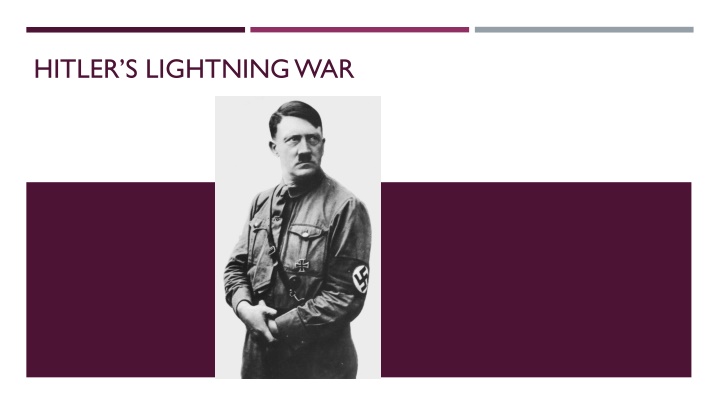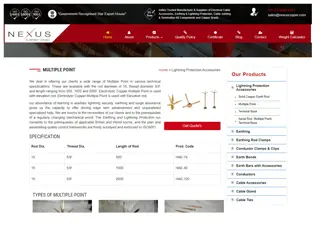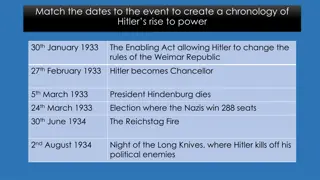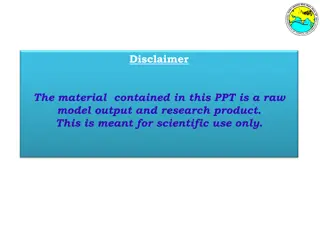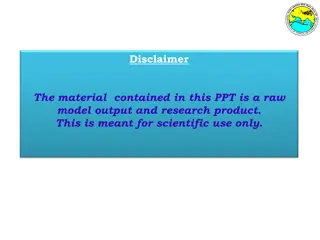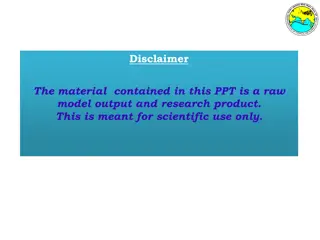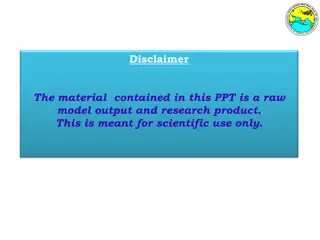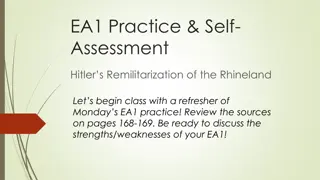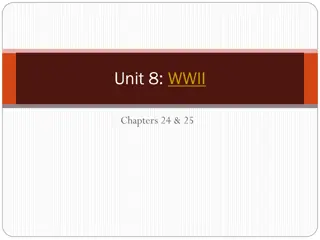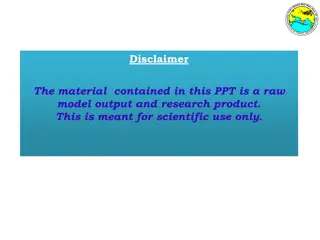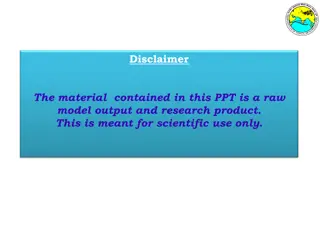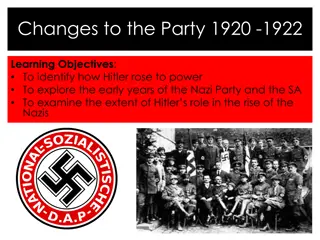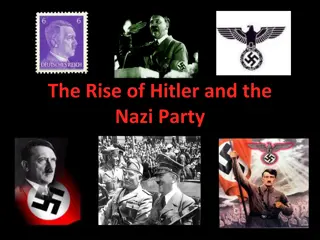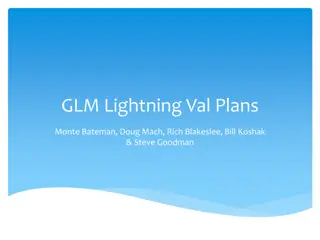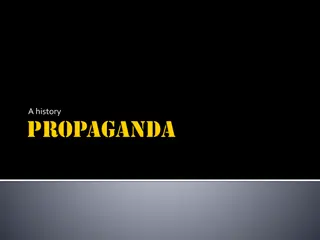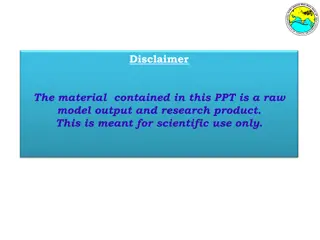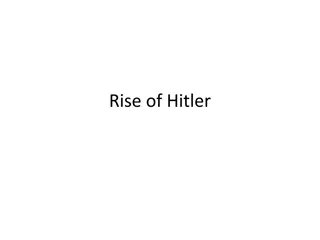World War II: Hitler's Lightning War and Its Impact
Germany sparked a new war in Europe by signing a nonaggression pact with the Soviet Union and executing a lightning attack on Poland in 1939. Subsequent events, including the fall of France, the Battle of Britain, and developments on the Eastern Front, shaped the course of World War II.
Download Presentation

Please find below an Image/Link to download the presentation.
The content on the website is provided AS IS for your information and personal use only. It may not be sold, licensed, or shared on other websites without obtaining consent from the author.If you encounter any issues during the download, it is possible that the publisher has removed the file from their server.
You are allowed to download the files provided on this website for personal or commercial use, subject to the condition that they are used lawfully. All files are the property of their respective owners.
The content on the website is provided AS IS for your information and personal use only. It may not be sold, licensed, or shared on other websites without obtaining consent from the author.
E N D
Presentation Transcript
GERMANY SPARKS A NEW WAR IN EUROPE Stalin and Hitler signed a ten-year nonaggression pact. Terms of the agreement Hitler gave Stalin some of his land 1. Germany and the Soviet Union agreed to divide Poland between them 2. Agreed that the Soviet Union could take over Finland and the Baltic countries of Lithuania, Latvia, and Estonia 3.
GERMANYS LIGHTNING ATTACK Hitler turns to take over Poland after he makes the treaty with Stalin. He plans a surprise attack for September 1, 1939. Using planes, tanks, and troops, it moved suddenly in a technique called blitzkrieg, or lightning war. https://www.youtube.com/watch?v=gUjrnlMAtQ4 Britain and France declared war on September 3rd, but Poland fell before they could help.
THE SOVIETS MAKE THEIR MOVE On September 17, Stalin then began annexing the regions covered in a second part of the agreement. Lithuania, Latvia, and Estonia fell without a struggle. However, Finland fought back. In March 1940, Finland was forced to surrender. For seven months after Poland fell to the Germans, Europe was calm. France and Britain got their armies ready. They waited for Hitler s next move.
THE FALL OF FRANCE Suddenly in April 1940, Hitler s armies invaded Denmark and Norway. Within two months, they also captured Belgium, the Netherlands, Luxembourg, and France. Part of the French army, led by Charles de Gaulle, escaped to Britain to remain free and continue the fight. By then, Italy s Benito Mussolini had joined Hitler s side. Great Britain now led by Winston Churchill stood alone.
THE BATTLE OF BRITAIN The German air force began bombing Britain. It wanted to weaken the country. Germany was getting prepared to invade Britain. But the British air force fought back. It was helped by the recently developed radar. This was an electronic tracking system that warned of coming attacks. Also, the British had broken the German army s secret code. The Battle of Britain lasted many months. Unable to break British defenses, Hitler called off the attacks in May 1941.
THE MEDITERRANEAN AND THE EASTERN FRONT Hitler then turned his attention to the east and to the Mediterranean. Germany sent troops under General Erwin Rommel to North Africa to help Italy fight the British. In April 1941, German armies quickly took control of Yugoslavia and Greece. In June, Hitler began a surprise invasion of the Soviet Union. The Red Army was the largest in the world. But it was not well-equipped or well-trained. The Germans quickly pushed deep into Soviet territory. The Red Army was forced to retreat.
THE MEDITERRANEAN AND THE EASTERN FRONT To keep supplies out of German hands, the Red Army destroyed everything left behind. The Germans were stopped from taking Leningrad in the north. They then turned on Moscow, the Soviet capital. A strong Soviet counterattack, combined with fierce Russian winter weather, forced the Germans back. Moscow had been saved, and the battle had cost the Germans 500,000 lives.
THE UNITED STATES AIDS ITS ALLIES The United States watched these events. Many Americans did not want to join in the war. President Roosevelt wanted to help the Allies, however. He asked Congress to allow Britain and France to buy American weapons. Soon, American ships were escorting British ships carrying guns bought from the United States. By the fall of 1941, U.S. ships had orders to fire on German submarines that threatened the ships. The United States and Germany were fighting an undeclared naval war. Roosevelt met secretly with Churchill in August of 1941. Although the United States was not officially in the war, the two leaders issued a statement called the Atlantic Charter. It supported free trade and the right of people to form their own government.
REVIEW 1. Why did Poland fall to the Germans so quickly? 2. Why did Germany fail to win the Battle of Britain? 3. What happened when Germany invaded the Soviet Union? 4. Name two ways in which the United States supported the Allies.
